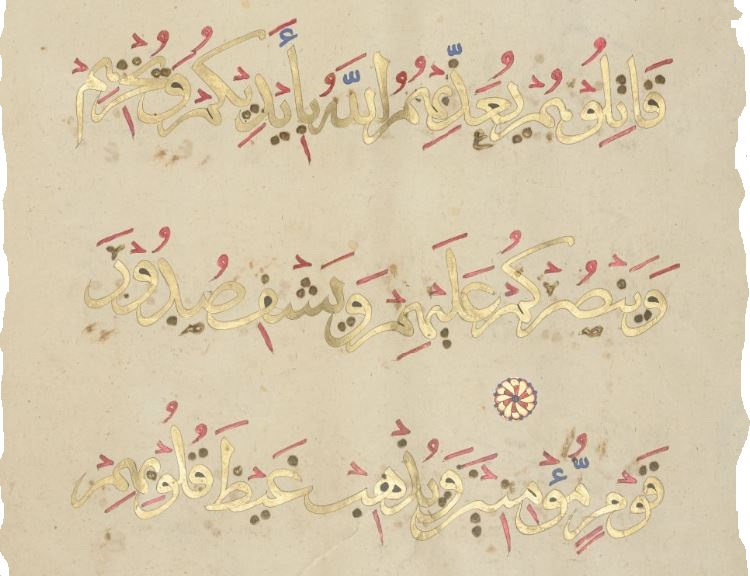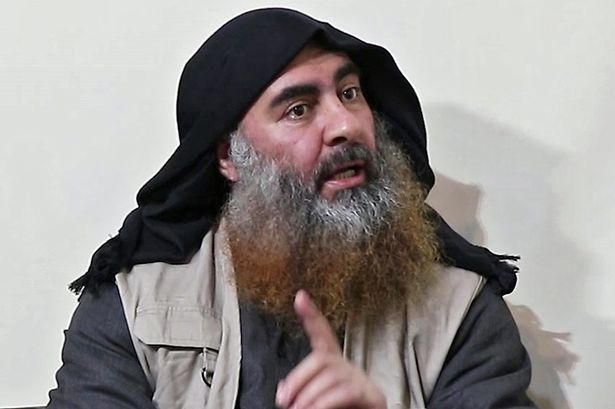
We also find in the work Ibn Taymiyya’s Fatwās concerning jihād: "All to whom the call of the Messenger of God – may God’s prayers and peace be upon him – has reached on the religion that God sent him to preach, all those who do not respond must be combatted: til there is no more sedition and religion should be only for Allah." [1]
IBN TAYMIYYA, who is characterized by his generosity in word and deed, tells us that everyone who hears about Islam and its Messenger and does not embrace it must be fought. Muslims, then, must wage jihad against four-fifths of the world’s population, because all of them have heard of Islam but have not embraced it. Should we be surprised, after that, that Abū Bakr al-Baghdādī created the Islamic State and killed those who did not pledge allegiance to him to fight against the infidels so that religion should be only for Allah?
Ibn Taymiyya openly urges the permissibility of taking cities by force and killing their inhabitants in order that the believers will heal the anger that is in their breasts.[2] He tells us that
When Mecca was conquered and [Muḥammad] wanted to heal the breasts of the Khuzāʽa – who are believers – against the Bakrī tribe who had fought against them, he licensed them to subdue them for half the day or more, granting immunity for them from punishment for their acts against the rest of the people. If the healing of their breasts and the removal of the rage in their hearts could have occurred without killing those who had broken their word and caused them harm, he would not have done that, and granted them immunity from punishment.”[3]
What more generosity than this can we expect from Ibn Taymiyya, who boasts that Muḥammad had allowed the Khuzāʽa tribe, which was allied to him, to have open season on the Banī Bakr tribe for half a day, killing, capturing and raping? But didn’t Shaykh Saʽd say that Ibn Taymiyya urges forgiveness, not only for other Muslims, but for all people?
Ibn Taymiyya’s tolerance appears in his justification for killing women who insulted Muḥammad, and his considering them as enemy combatants as in battles. He also talks about the Jewess who insulted Muḥammad and who was subsequently slain by her blind husband, and about ‘Aṣmā bint Marwān the poetess who was attacked by treachery in her bed. On page 90 of his work The Unsheathed Sword he states that
These women were enemy combatants who had caused harm to the Prophet in the arena of war. They were slain precisely for their insults, as the hadith state. So killing a dhimmī woman for this is all the more appropriate, just as it would be for a Muslim woman, since the guarantee of protection between us and her prohibits her from engaging in insults, and obliges her to abide in a state of lowliness and humiliation.
The dhimmī woman must demonstrate her humiliation and lowliness, and the Muslim woman must sanctify Muḥammad, and if any of them breaks this covenant they are to be killed. Ibn Taymiyya permits the killing of women if they merely criticize or satirize Muḥammad, even though the Qur’ān says concerning Muḥammad: Say: I am only a mortal like you, to whom it has been revealed ….[4] Does criticizing mortals require women to be killed? The strange thing is that Ibn Taymiyya himself says:
Poetry is metred speech – memorized, narrated and chanted with musical sounds and melodies. It is long familiar to people and can effect harm and turn folk from God’s path, something that prose cannot. Therefore the Prophet used to order Ḥassān to satirize others and say: “His is a power over them that is greater than noble origin”. His satire had a great impact on them, causing them to refrain from acts that they would not have refrained from were they insulted with prose words many times more numerous than poetical verses.”[5]
So it was permissible for the Prophet to order Ḥassān ibn Thābit to satirize infidels with poetry, yet whoever satirizes Muḥammad with poetry will be forcibly killed. This is the tolerance of Ibn Taymiyya.
The second feature with which Shaykh Dr. Fahd bin Saʽd praised his Shaykh, the Shaykh al-Islam Ibn Taymiyya, was his broad culture. On this he says:
The second feature is his deep reading of human thought, whether regarding its mechanisms or its content, and his authority for that from the originality of his intellect and culture. His reading on this was a critical and scrutinizing reading, one that could detect currents of thought and meanings, and extract ideas and theses.
Let’s take a look at his deep critical reading of human thought. Ibn Taymiyya says, in a hadith on al-Bukhārī,
In his Ṣaḥīḥ al-Bukhārī narrated on the authority of ‘Abd al-ʽAzīz bin Ṣuhayb, on the authority of Anas: There was a Christian man who converted to Islam and read the sūras of Al-Baqara and Āl ʽImrān. He used to write down (the revelations) for the Prophet. Later on he returned to Christianity again and he used to say: “Muhammad knows nothing but what I have written for him.” Then Allah caused him to die, and the people buried him, but in the morning they saw that the earth had thrown his body out. Then it was said: This is the work of Muḥammad and his Companions – they were the ones who dug up our friend and cast away his body. So they re-buried the body as deep in the ground as they could. But in the morning the earth again had thrown his body out. They then realized that it was not the work of humans, and so they themselves then cast away his body.[6]
Is this a deep reading that criticizes human thought or one that deludes the mind? So God intervenes and kills the Christian who doubted Muḥammad and causes the earth to vomit up his body after he was buried twice, while at the same time God does not put ‘Abd Allāh ibn Abī Sarḥ to death – the Muslim who said the very same thing about Muḥammad. The strange thing is that Ibn Taymiyya, like al-Ghazālī before him, uses Āḥād (single narrated) and weak hadiths[7] to prove his point. He says, for example, about one of the mursal hadiths[8] transmitted by al-Shaʽbī:
Then if there is a direct transmission in it – given that al-Shaʽbī considers it unlikely that ‘Alī heard it, then it is an authoritative argument, because in al-Shaʽbī there are ṣaḥīḥ al-mursal hadiths which are not recognised either as mursal or as ṣaḥīḥ.[9]
And he says about al-Wāqidī concerning the story of the killing of the Jewish woman who had insulted Muḥammad:
We prefer to relate the story from those who participated in the maghāzī raids due to the weaknesses in al-Wāqidī stemming from the popularity of this story among them, even though nobody disagrees as to the fact that al-Wāqidī is one of the most knowledgeable on this subject of the maghāzī raids.
Is this what a man with a deep, critical reading does, using mursal hadiths and tales from weak narrators to prove his point: a point that urges the killing of those who criticize a man that the Qur’ān itself said was a mortal like the rest of us?

Suggested Reading
And let us finally take a look at Ibn Taymiyya’s fierce attack on the philosophers of Islam, where he says:
Some of them say that [the Prophet] did not know the Truth to the degree that the major philosophers and their ilk knew it, and these prefer the ‘Perfect Philosopher’ [i.e. Aristotle][10] over against the Prophet, and prefer the ‘Perfect Walī’ who was a witness of the Prophet, in the same way that they prefer Ibn ‘Arabī al-Ṭā’ī – ‘the Seal of the Saints’ – as he claimed, over the prophets, just as al-Fārābī, Mubashshir ibn Fātik and others ranked The Philosopher higher than the Prophet. But as for those who say that the Prophet knew the Truth, these may say that that the Prophet is superior to The Philosopher since he knew things that The Philosopher did not, and more besides, and was able to address the masses in a way that The Philosopher, Ibn Sīnā and others like them could not. Included in this sentence are the sayings of the philosophizers and the esoterics such as the Ismāʽīlī atheists, the authors of the Letters of the Brethren of Purity, al-Fārābī, Ibn Sīnā, al-Suhrawardī who was slain, Ibn Rushd (Averroes), and the Sufi atheists who have deviated from the path of the earlier elders of the People of the Book and the Sunna, such as Ibn ‘Arabī, Ibn Sabʽīn, Ibn al-Ṭufayl the author of the work Ḥayy Ibn Yaqẓān, and many others.[11]
Is this a reading of human thought that is deep, as Shaykh Dr. Saʽd bin Fahd ascribes to the Shaykh al-Islam Ibn Taymiyya?
In my estimation, Ibn Taymiyya was the mastermind behind the emergence of extremism, terrorism and takfīr in the Islamic world, right from the 14th century up until now.
[1] Qur’ān VIII (al-Anfāl), 39.
[2] The reference is to the phraseology in Qur’ān IX (al-Tawba) 14: Allah will chastise them at your hands, and He will lay them low and give you victory over them, and He will heal the breasts of folk who are believers (Ed.)
[3] Ibn Taymiyya, الصارم المسلول على شاتم الرسول (The Unsheathed Sword against Those who Insult the Prophet), Vol 1, p.23.
[4] Qur’ān XLI (Fuṣṣilat), 6.
[5] Ibn Taymiyya, The Unsheathed Sword, Vol 1, p.90.
[6] Ibn Taymiyya, Op. cit., p.80. The reference is to Ṣaḥīḥ al-Bukhārī, 3617. Ibn Taymiyya goes on to conclude that ‘it is evidence that [the Prophet] could kill whoever insulted him even if they repented and returned to Islam’. [The Unsheathed Sword (summary)] p. 50.
[7] See Glossary under ‘Hadith’, and the subsection Āhād.
[8] Hadiths direcly related by a Follower (see Glossary under Tābi‘ī).
[9] Ibn Taymiyya, Op. cit., p.48.
[10] Aristotle had a high reputation in the Islamic world as the ‘First Teacher/Philosopher’ (al-muʽallim al-awwal) epitomizing the paradigm of the ancient philosopher who sought to establish a comprehensive grasp of the first principles of things.
[11] درء تعارض العقل والنقل Vol. 1, p.3.
Main image: Qur’ān IX (al-Tawba) 14-15: Fight them, Allah will chastise them at your hands, and He will lay them low and give you victory over them, and He will heal the breasts of folk who are believers, and remove the rage of their hearts – from an illuminated Qur’ān commissioned by the Mamluk sultan Rukn al-Dīn Baybars (1223-1277). British Library Add MS 22408.
See Part 1 of this essay here

